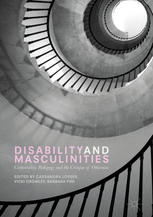

Most ebook files are in PDF format, so you can easily read them using various software such as Foxit Reader or directly on the Google Chrome browser.
Some ebook files are released by publishers in other formats such as .awz, .mobi, .epub, .fb2, etc. You may need to install specific software to read these formats on mobile/PC, such as Calibre.
Please read the tutorial at this link: https://ebookbell.com/faq
We offer FREE conversion to the popular formats you request; however, this may take some time. Therefore, right after payment, please email us, and we will try to provide the service as quickly as possible.
For some exceptional file formats or broken links (if any), please refrain from opening any disputes. Instead, email us first, and we will try to assist within a maximum of 6 hours.
EbookBell Team

5.0
98 reviewsIn recent years, attending to diversity in the cultivation of embodied identity has been given additional impetus as a result of intersectionality theory. Despite this, a key gap remains in terms of knowledge about masculinity and disability. This book addresses this lacuna through ten empirical chapters organised through the inter-related themes of corporeality, pedagogy and the critique of otherness. Each of the chapters positions the subject of masculinity and disability as a site of cultural pedagogy by affirming different ways of knowing of masculinity beyond dominant ideologies that normalise a particular masculine body and relegate disabled masculinities to the position of abnormal ‘Other’.
Part One focuses on pedagogy. Through the materialities of ‘medicalized colonialism’, imprimaturs of ‘relational genealogies’, ‘compounding differences’ and an analytical exposition of some of the neo-colonial conditions of the Global South within spatially-considered places of the Global North, Chapter 1 examines the denial of human rights to the Indigenous Anishinaabe community of Shoal Lake 40 in Canada. Chapter 1 theorises masculine corporeality in terms that take seriously First Nations', national and transnational body politics seriously. Chapter 2 examines the ways that movement and affect serve as a form of pedagogy for boys with autism spectrum in schools.
Part Two’s focus on corporeality includes an examination of the nexus of disability and diagnosis in the context of transgender men’s experiences of mental health, and a discussion of the ways that intersex individuals who identify as men and have experienced ‘genital normalising surgery’ actively negotiate pluralised masculinities. The focus on media in Part Three encompasses a study of the mis-interpellation of the disabled male subject in Australian male literature, research on the discursive strategies utilised in media representations of disabled veterans in Turkey, and an analysis of the political implications of depictions of masculinity, disability and sexualities in a variety television program. Part Four’s theme of self-stylisation takes up the questions of men’s reconstructions of masculinity in light of Lyme Disease, the potential pleasures of heterosexuality for young men with a hearing disability in the realm of Australian-Rules Football, and the diverse ways that disabled men negotiate patriarchal masculinity in intimate relationships.